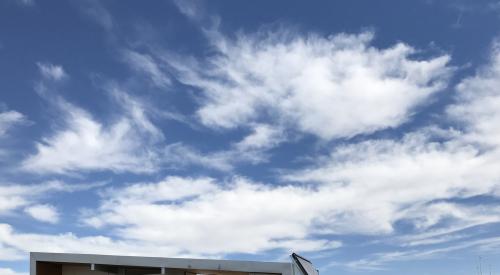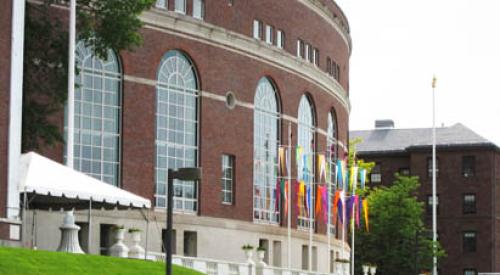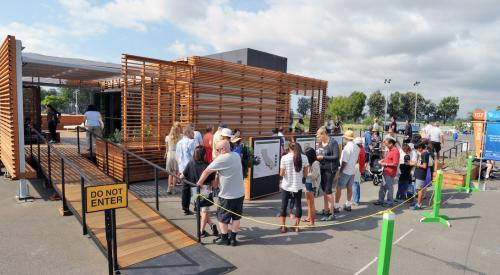Award winners were named in the U.S. Department of Energy Solar Decathlon 2015. The competition, held from Oct. 8 to 18 in Irvine, Calif., is intended to encourage teams to design and build reasonably priced houses that are attractive, comfortable, and environmentally friendly. The houses feature energy-efficient appliances and construction methods, with renewable energy systems.
The Solar Decathlon consists of 10 contests (including market appeal, architecture, affordability, engineering, comfort, and appliances), each worth 100 points, with a total possible score of 1,000.
Stevens Institute of Technology was named the overall winner of the contest, scoring 950.685 points. The team designed what it calls Sure House (pictured, above)—a solar-powered home that can withstand extreme weather and provide emergency power in the aftermath of a storm. With the exterior appearance of a cozy shore house, the Sure House has a photovoltaic system, a storm-resistant shell, a hybrid heat pump that can function without grid power, and thick insulation and tight air sealing. It even exceeds Passive House standards for energy use.
Stevens received perfect 100 scores in home life and commuting measures, a 99 in appliance performance, and a 98 in market appeal. The New Jersey home is targeted at middle-class families.
The University at Buffalo, The State University of New York team finished second with a score of 941.191. The GRoW Home, a Buffalo-based tight-envelope structure that reduces heat loads in the winter with help from a PV system and high-performance glass doors, earned perfect scores in energy balance and commuting, with a 99 in appliances.
California Polytechnic State University, San Luis Obispo (910.000), Texas/Germany: The University of Texas at Austin and Technische Universität München (887.034), and Missouri University of Science and Technology (878.726) finished third through fifth in the 14-team competition.













